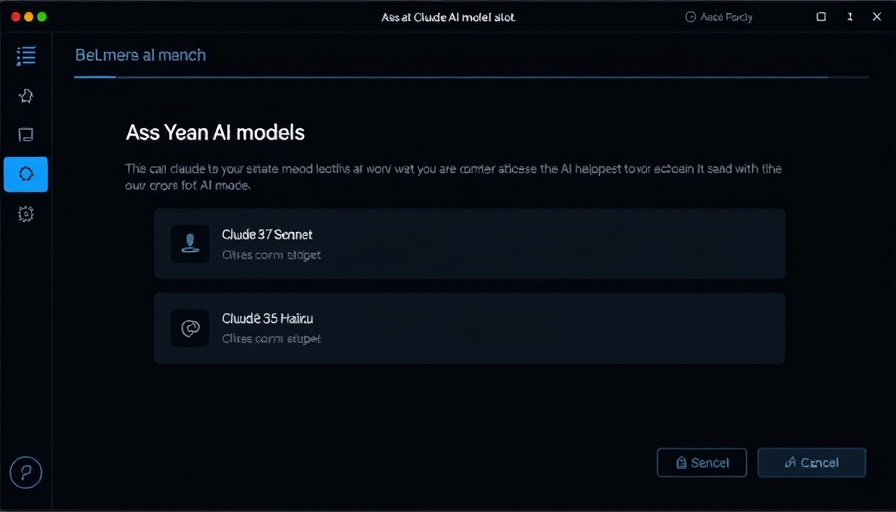
Claude 3.7 Sonnet: Redefining AI Reasoning
In the rapidly evolving world of AI, Anthropic’s newly launched Claude 3.7 Sonnet has emerged as a groundbreaking hybrid reasoning model, marking a significant leap in artificial intelligence capabilities. With the ability to toggle between quick responses and an extended thinking mode, this latest version stands out among its predecessors and competitors alike. Let's explore what makes Claude 3.7 Sonnet a game-changer in AI technology.
What Sets Claude 3.7 Sonnet Apart?
Unlike traditional models that either produce rapid responses or engage in deep reasoning tasks separately, Claude 3.7 Sonnet integrates both functionalities. Users can effortlessly switch between standard mode for quick replies and extended thinking mode for more complex queries, significantly enhancing the model's usability in real-world applications. This flexibility allows businesses to balance between performance and cost, catering to various contexts—from quick coding tasks to in-depth analytical processes—in ways that were previously impossible.
Transforming Coding and Development
One of the most notable advancements is Claude's enhanced coding capabilities. It's not only designed for simple code generation, but it excels in managing complex codebases, making it an essential tool for developers. The introduction of Claude Code—a command line tool that allows users to delegate substantial engineering tasks directly from their terminal—can save considerable time and effort in software development. Early tests indicate that this tool can execute tasks in a fraction of the time it traditionally takes, positioning it as a crucial asset for developers focused on efficiency and productivity.
The Role of Extended Thinking in AI
Claude 3.7 Sonnet's 'extended thinking' feature not only refines the model's reasoning but enhances its performance in handling intricate subjects like mathematics and physics. By allowing the AI to self-reflect before producing answers, users benefit from detailed problem-solving processes akin to human thought. This nuanced capability has been reported to yield substantial improvements across various domains, especially in math-focused tasks and competitive coding scenarios.
Promise of Practical Applications
With its unique ability to perform in both rapid-fire and contemplative modes, Claude 3.7 Sonnet represents a significant step towards AI systems that can closely collaborate with humans. As organizations strive for greater integration of AI into their workflow, Claude 3.7 Sonnet offers the promise of elevating productivity and scale, helping teams achieve results in mere minutes that previously took days. This effectively democratizes access to advanced AI, making it easier for businesses of all sizes to innovate and solve complex problems.
Challenges and Considerations
However, as with any emerging technology, the introduction of Claude 3.7 Sonnet raises questions around security and responsible use. Anthropic reports a focus on safety features, including rigorous testing to mitigate risks like prompt injection attacks. The importance of ethical AI cannot be overstated, and ongoing vigilance will be crucial as these models become more embedded in everyday applications.
Building the Future of AI
The launch of Claude 3.7 Sonnet signals a promising future for AI technology. As global industries increasingly leverage AI for both decision-making and complex problem-solving, the evolution of models like Claude serves as a beacon of innovation. Users are encouraged to explore the various capabilities this powerful model offers and to contribute feedback that can shape its development moving forward.
For organizations keen on harnessing the capabilities of AI, the integration of models like Claude 3.7 Sonnet into their systems could signal the next step in their operations, propelling them towards an era of unprecedented innovation and efficiency.
 Add Row
Add Row  Add
Add 


Write A Comment